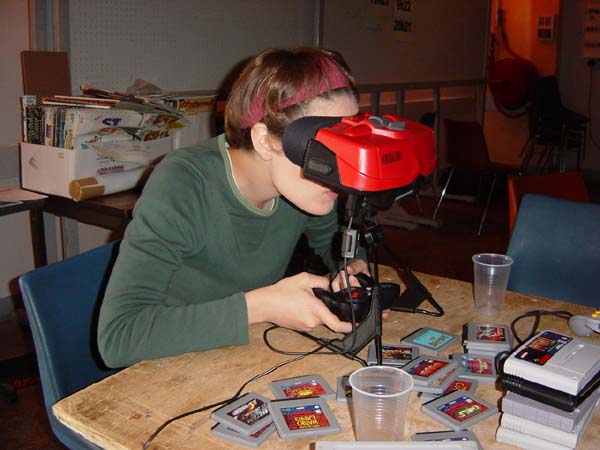ashecitism
Member
http://www.wsj.com/articles/google-developing-stand-alone-virtual-reality-headset-1455218948
As for the improved Cardboard, GearVR competitor: http://www.ft.com/cms/s/0/b33d75fe-cc5a-11e5-be0b-b7ece4e953a0.html
The Alphabet Inc. unit is developing an all-in-one virtual-reality headset that doesnt rely on a smartphone, computer or game console, according to people familiar with the matter. That would be a first in the rapidly evolving field.
Google also plans to release later this year a more advanced version of its $20 cardboard virtual-reality viewer that uses a smartphone as a screen, people familiar with the matter said. The new plastic viewer will include computer chips and sensors, these people said.
Googles planned stand-alone headset appears to aim for a middle ground: a quality experience not tethered to an expensive PC or game console. Still, it is unclear whether many consumers are willing to pony up for another entertainment gadget.
One of the people familiar with the matter said the headset will include a screen, high-powered processors and outward-facing cameras. Google plans to use chips from startup Movidius Inc. that use the cameras feeds to track the motion of the users head, the person said. Other high-end headsets, like the Oculus Rift, tap the computing power of connected PCs and use external cameras to track users motion.
The timing of the stand-alone headset is unclear. One of the people familiar with the matter said it could be unveiled this year, while two others cautioned that it is early in development and Google could decide not to release it.
As for the improved Cardboard, GearVR competitor: http://www.ft.com/cms/s/0/b33d75fe-cc5a-11e5-be0b-b7ece4e953a0.html
Google is developing a new virtual-reality headset for smartphones, and adding extra support for the technology to its Android operating system, as it challenges Facebook's Oculus for an early lead in Silicon Valleys latest platform war.
The new headset will be a successor to Cardboard. the cheap-and-cheerful mobile VR viewer that Google launched in 2014, and feature better sensors, lenses and a more solid plastic casing, said people familiar with its plans. The smartphone-based device will be similar to the Gear VR, a collaboration between Samsung and Oculus that went on sale to consumers late last year.
Google is expected to release its rival headset, alongside new Android VR technology, this year. Like Cardboard and Gear VR, the new headset will use an existing smartphone, slotted into the device, for its display and most of its processing power.

